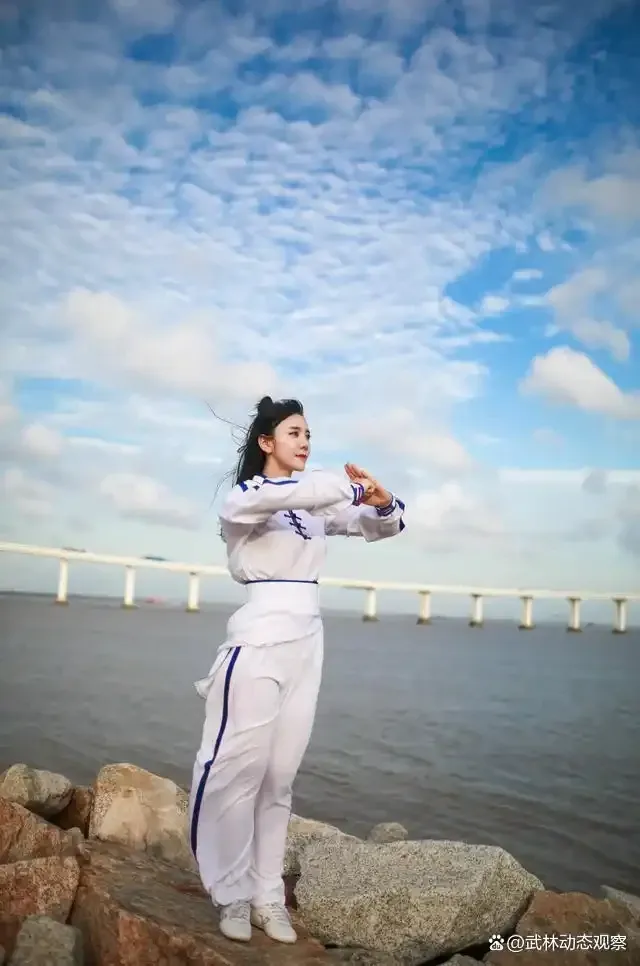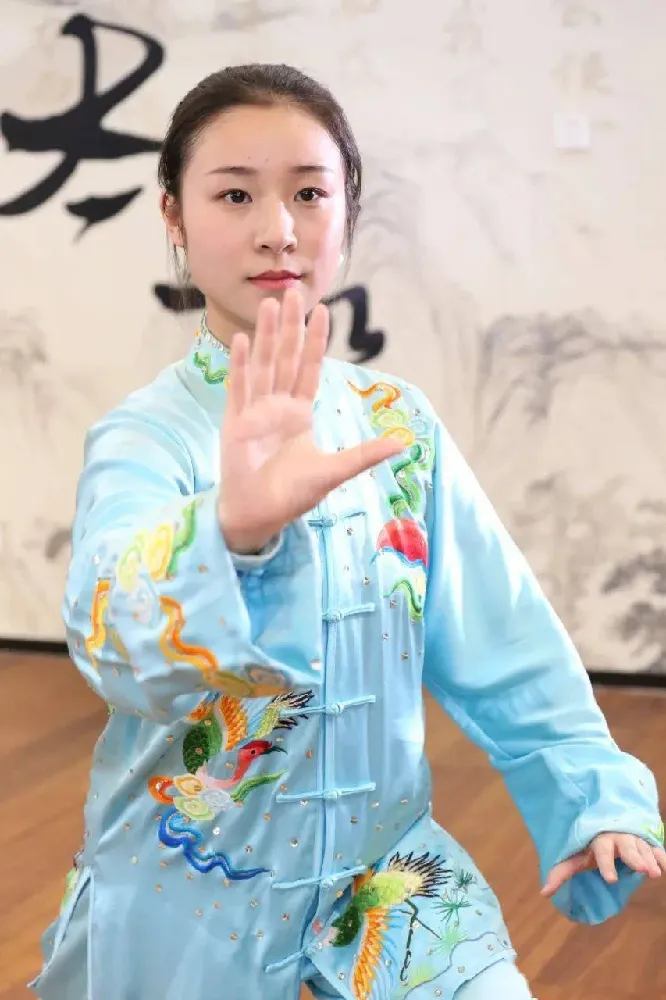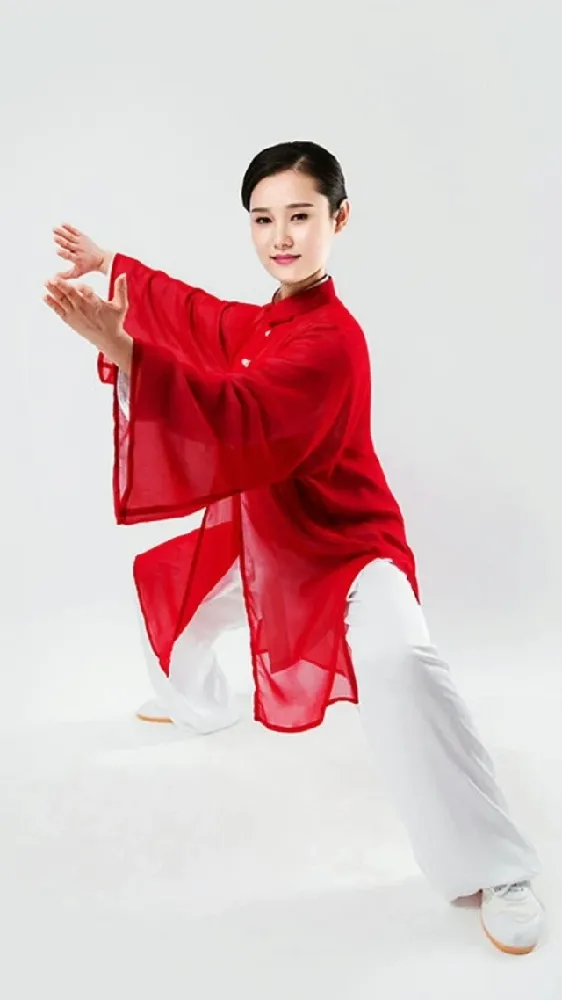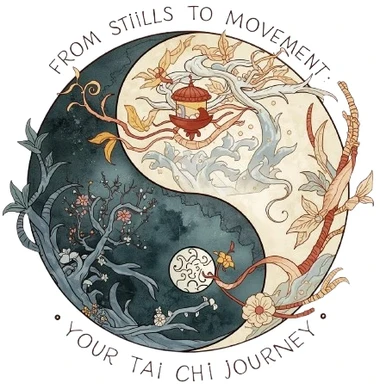The Unbeatable Combo: Tai Chi for Mind, Body, and Inner Strength
Forget everything you think you know about martial arts. You're busy, and you need solutions that work. What if you could build a resilient, calm, and powerful version of yourself without high-impact strain or exhausting workouts?
The answer lies in Tai Chi. Rooted in ancient martial arts, this practice is a powerful, low-impact system that boosts balance, slashes stress, and specifically addresses women's health issues like hormonal balance and bone strength. It’s not just exercise; it’s armor for modern life.

Wait, Tai Chi is a Martial Art? For Real Soldiers?
Absolutely. Let's clear this up right away. Tai Chi wasn't born in a spa; it was forged in the fires of combat.
Chinese warriors developed it as an "internal" martial art. The goal wasn't just brute force, but intelligent force. Think of it as using strategy over strength. The core idea is to use an opponent's energy against them—redirecting a push or a pull so that their own power becomes their downfall. It's the ultimate "work smarter, not harder" philosophy.
Why does this matter for you? Because the skills that made a warrior effective on the battlefield are the exact same skills that make you resilient in daily life: mental focus, unshakable balance, and the ability to stay calm under pressure.
Modern military and special forces units around the world incorporate Tai Chi and similar disciplines for this exact reason.
They train for mental clarity and structural integrity, not just for running and lifting.
This martial foundation is precisely what makes Tai Chi's health benefits so profound and effective.
What Are the Real, Physical Benefits for Women?
This is where the magic happens. The slow, controlled movements are a secret weapon for your physical health. Let's break it down.
Better Balance & Stronger Bones
This is a huge one. Tai Chi is essentially "fall prevention training" in disguise. All those slow, deliberate weight shifts and single-leg stances force your body to master its equilibrium.
- The Result? Studies show a 31% reduction in falls for regular practitioners. This is critical because it directly preserves your independence.
- Bone Density Boost: This isn't just about not falling; it's about building a body that can handle it. The weight-bearing nature of the stances gently stresses your bones in a good way, signaling your body to increase bone density and fight osteoporosis.

A Tune-Up for Your Heart & Lungs
Don't let the slow pace fool you. When paired with its deep, diaphragmatic breathing, Tai Chi becomes a stellar low-impact cardio workout.
- It can boost your lung capacity by 15-20%.
- It trains your heart to work more efficiently, potentially lowering your resting heart rate.
Think of it as upgrading your body's internal engine without the wear-and-tear of high-intensity workouts.
Hormonal Harmony & Metabolic Support
Your body's systems don't work in isolation. The gentle, rhythmic motion of Tai Chi acts like a reset button for your nervous system.
- By calming the "fight-or-flight" response, it helps balance hormones, offering real relief from menopausal symptoms like hot flashes and night sweats.
- The subtle twisting and turning massages your digestive organs, helping to stimulate metabolism and ease issues like bloating and constipation.
How Can Tai Chi Actually Reduce My Stress?
This might be its superpower. In our always-on world, Tai Chi is a moving meditation that forces you to be present.
Here’s the science behind the calm: The focused, flowing practice lowers cortisol (your primary stress hormone) by up to 25%. When you're concentrating on the precise placement of your hand and the shift of your weight, you simply can't simultaneously worry about your inbox or that awkward thing you said last Tuesday.
"You’re not just learning a sequence of moves. You’re training your mind to respond, not react."
This mental discipline is the direct descendant of its martial roots. A soldier must remain calm to make life-or-death decisions.
You can use that same skill to navigate a stressful work deadline or a tough conversation with grace. It builds a "fortress of calm" within you that no external chaos can easily breach.

Tai Chi vs. Yoga: Which One Is Actually Better for You?
It's the question everyone wonders. Both are amazing, but they serve different purposes. Think of it like this:
Yoga is like holding a powerful, restorative stretch. It's fantastic for deep static flexibility, core strength, and spinal alignment.
Tai Chi is like moving meditation for your entire body. It's a martial art in disguise, focused on flow, balance, and generating power from your core.
So, which should you choose?
- Choose Yoga if your primary goals are deep stretching, improving static flexibility, and building strength through held postures.
- Choose Tai Chi if you want to dramatically improve your balance, reduce your fear of falling, build functional strength for daily life, and learn to manage stress through continuous, mindful movement.
If you're drawn to the idea of a practice that combines the mindfulness of meditation with the strategic principles of a martial art, Tai Chi is your undisputed champion.
Okay, I'm Convinced. How Do I Start Without Getting Overwhelmed?
Starting something new can feel daunting. The secret? Don't try to learn it from a video alone. The subtle details of posture and weight shift are everything.
Here’s your stress-free starter plan:
- Find a Qualified Teacher. This is non-negotiable for beginners. Look for a local class or a reputable online school (like ours at www.taichiwuji.com) where an instructor can give you feedback. A good teacher will correct your form, preventing bad habits and ensuring you get the maximum benefit.
- Embrace the "Beginner's Mind." You will not look like the master in the park on day one. And that's perfect. Let go of perfection. Focus on the feeling of the movement, not just the shape.
- Commit to 15 Minutes a Day. Consistency beats duration every single time. A short, daily practice is infinitely better than a two-hour session once a month. Your neuromuscular system learns through frequent, quality repetition.
- Wear the Right Gear. You don't need special equipment. Just wear loose, comfortable clothing and flat, flexible shoes (or even just grip socks). You need to be able to move and sink into postures without restriction.
- Listen to Your Body—Especially Here.
Knees: Never let your knees extend past your toes. If you feel pain, back off.
Pregnancy or Postpartum: Consult your doctor and find an instructor experienced in working with your specific needs.
Existing Injuries: Same rule—talk to your doctor and your Tai Chi teacher so they can offer modifications.
The Real Proof: It's More Than Just Movement
This isn't just about theory. The transformation is real and personal.
Take Maya, a 42-year-old project manager. She came to Tai Chi burnt out, with constant lower back pain from sitting all day and a growing anxiety about her perimenopausal symptoms. After just three months of consistent practice, she told us:
"I didn't just get physically stronger. I became harder to fluster. A stressful email doesn't trigger me like it used to. I feel a sense of calm power I didn't know I had. And my lower back? I haven't thought about it in weeks."
This is the warrior's grace in action. It's not about fighting others; it's about winning your inner battles against stress, physical decline, and self-doubt.
Your Next Move: Step Into Your Strength
So, is Tai Chi just gentle exercise for retirees? Not even close.
It's a proven, potent system for any woman ready to take control of her health. It builds a body that is balanced, strong, and resilient. It forges a mind that is focused, calm, and capable. It’s the ancient martial arts secret to thriving in our modern world.
You have two choices: Continue with the status quo, or try something that has empowered millions.
Ready to feel the difference? We’re here to guide you. Explore our free beginner-friendly resources and courses designed specifically for women at www.taichiwuji.com.
Your journey to a stronger, calmer, and more confident you starts with a single, intentional step.
Frequently Asked Questions: Tai Chi for Women's Health
What is the best style of Tai Chi for women beginners?
For beginners, Yang Style is highly recommended. It's the most popular and accessible form worldwide, characterized by its slow, gentle, and flowing movements. The 24-form Yang Style is a standardized, shortened sequence that is perfect for newcomers to learn the fundamentals without being overwhelmed.
Can Tai Chi help with weight loss for women?
While not as intense as running, Tai Chi is an effective low-impact cardiovascular exercise. It aids weight management by: Boosting Metabolism: The continuous movement keeps your heart rate elevated in a fat-burning zone. Building Lean Muscle: It engages and tones your core and leg muscles. Reducing Stress-Induced Eating: The cortisol-lowering effect can help curb emotional eating habits.
How does Tai Chi improve balance and prevent falls?
This is one of its most proven benefits. Tai Chi is essentially a continuous balance training session. It works by: Strengthening Ankles and Legs: The constant, controlled weight shifts build stabilizer muscles. Enhancing Proprioception: This is your body's ability to sense its position in space, which naturally declines with age. Core Engagement: Every movement originates from the core, creating a stable "power center."
Are there specific Tai Chi exercises for lower back pain?
Yes! Many foundational Tai Chi movements are excellent for gentle back pain relief. Exercises like "Wave Hands like Clouds" gently mobilize the spine and strengthen the supporting muscles. The emphasis on proper posture ("sinking the tailbone") and using the legs instead of the back for support is a game-changer for chronic pain sufferers.
What are the mental health benefits of Tai Chi for women?
The mental benefits are profound and backed by science. Regular practice acts as a moving meditation, leading to: Significant Reductions in Anxiety and Depression symptoms. Improved Sleep Quality by calming the nervous system. Enhanced Cognitive Function and focus, thanks to the mind-body coordination required. A greater overall sense of mental clarity and emotional resilience.
Is Tai Chi safe during pregnancy or for postpartum recovery?
With your doctor's approval, Yes. Its low-impact nature makes it a safe option for maintaining strength and calm during pregnancy. For postpartum recovery, it's exceptional for gently rehabilitating the core and pelvic floor, improving posture, and managing the stress of new motherhood. Crucially, always work with a qualified instructor who can provide appropriate modifications.
Do I need any special equipment or clothing for Tai Chi?
Not at all. One of its greatest advantages is its simplicity. You just need: Comfortable, Loose-Fitting Clothing that doesn't restrict movement. Flat, Flexible Shoes with thin soles (like kung fu shoes or flexible trainers) or barefoot/grip socks on a safe surface. An Open Space: Just enough room to stretch your arms out without hitting anything.
